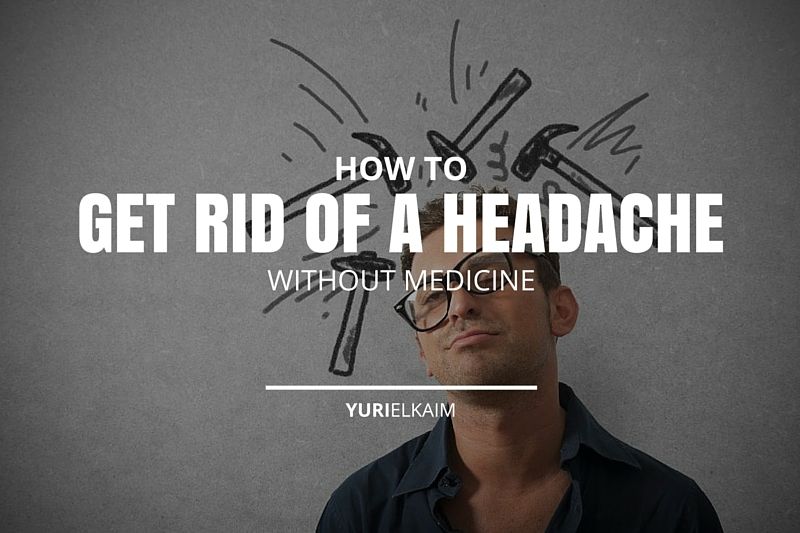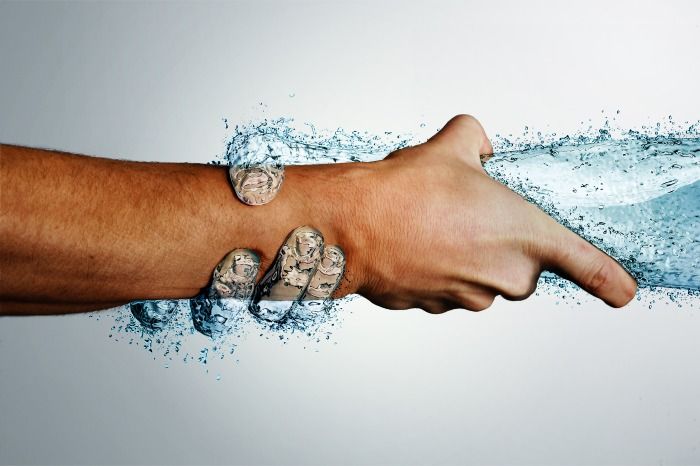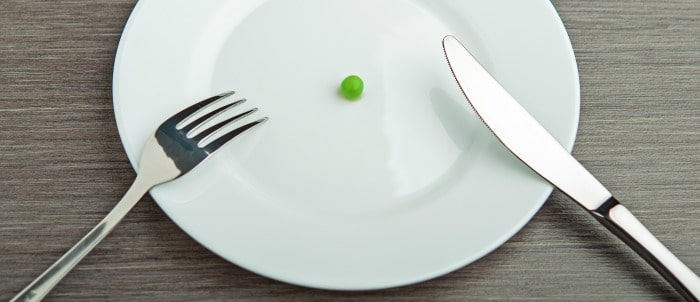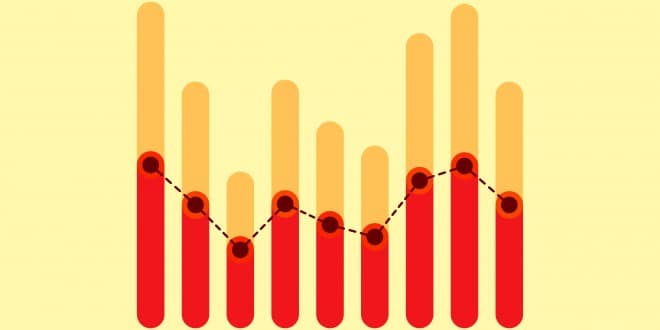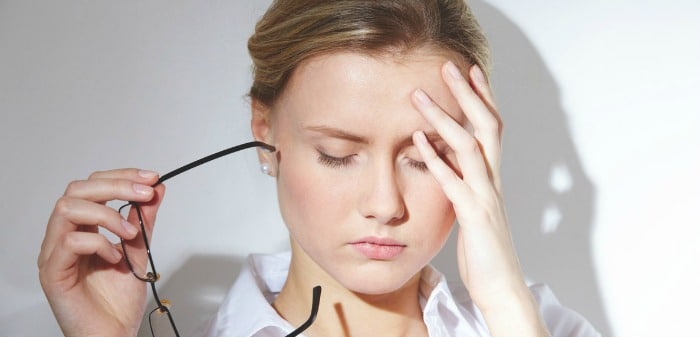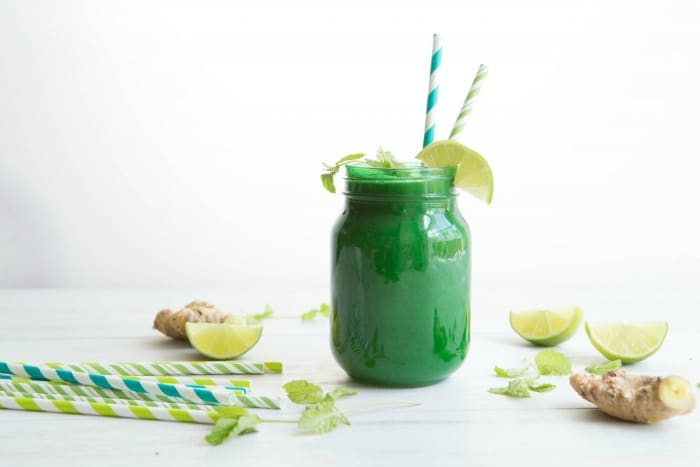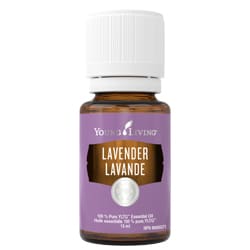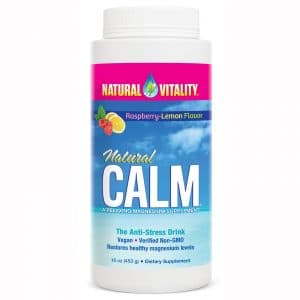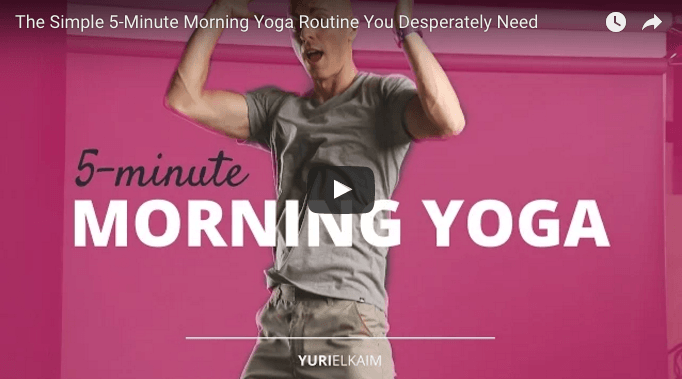In this article
Most of us get headaches from time to time. And whether it’s a dull ache that lasts for hours or a sudden sharp pain that strikes in random bursts, when they hit, we want quick and effective pain relief.
You’re not alone if you’re wondering how to get rid of a headache without medicine.
Here’s something to keep in mind: When you get a headache, it’s not actually your brain that hurts. Your brain doesn’t contain any nerves that can feel or sense pain.
Instead, a headache occurs when you’re feeling nerve pain in the muscles and blood vessels located around your brain.
The painful throbbing sensation associated with headaches happens when these blood vessels dilate.
Different Types of Headaches
There are a wide variety of headaches, each with their own kind of pain and potential triggers.
Tension headaches usually affect the lower back of the head, eyes, and neck, and are the most common type of headache.
Migraines are often more painful than tension headaches because they are accompanied by other symptoms, such as nausea, disturbed vision, and vomiting. Migraines can cause extreme sensitivity to light and sound, and may last more than just a few hours.
In some cases, people report headaches that get worse with movement, or worse as the day goes on.
These symptoms are related to both tension headaches and migraines, but could also be signs of a deeper issue. If you experience ongoing headaches that seem to be worsening, it’s always best to speak with a healthcare professional to ensure the headaches aren’t a symptom of a deeper issue.
The good news is that there are many natural remedies that work for all types of headaches.
But first, let’s identify what causes most headaches.
Common Causes of Headaches
Dehydration
When you’re not getting enough fluids throughout the day and you become dehydrated, you can wind up with a headache.
That’s because your brain is composed of water, and when your body isn’t well hydrated, the water in your brain tissue can become depleted. This can cause your brain to pull away from your skull, which triggers pain receptors around the brain and results in a headache.
Not enough water can also reduce the amount of oxygen that makes its way to your brain, which can further trigger headaches.
[Related: The Best Homemade Electrolyte Drink for Quick Hydration]
Caffeine Addiction
When you regularly consume caffeine, your body can become dependent on it.
Ever suddenly cut your caffeine intake, and get a whopper of a headache? That’s a sure sign your body is dependent on it.
Caffeine can also dehydrate you, adding to its headache-causing power.
If you drink coffee regularly, over time, your body will build up a tolerance to the effects of caffeine. This requires you to drink more and more coffee to continue getting the same coffee “buzz,” and it dehydrates you so much more.
Try cutting back on your caffeine intake with my High-Protein Decaf Mocha Recipe.
Nutrient Deficiencies
Vitamin and mineral deficiencies can be linked to headaches, especially when it comes to magnesium.
Among other things, one of magnesium’s jobs is to relax your muscles. It also acts as a natural relaxant for blood vessels. This can help explain why having low levels of magnesium can cause frequent headaches (1).
Magnesium deficiency is surprisingly common. Stress, refined sugar, alcohol, and caffeine can deplete magnesium, and are all prevalent in today’s modern diet and lifestyle.
[Related: How to Fix 9 of the Most Common Nutrient Deficiencies Naturally]
Season or Weather Change
Experts still aren’t sure why changes in the weather or the season trigger headaches. That being said, changes in humidity, dry weather conditions, and a drop in temperature have been suspected for causing headaches.
Some suggest weather factors can trigger imbalances in brain chemistry (such as dropping serotonin levels), which can cause headaches.
Again, this isn’t proven information – only a theory. To find out if your headaches have any correlation to changing weather or seasons, it can be helpful to keep a symptom journal and document the season and weather on the days you get headaches.
Fluctuating Blood Sugar Levels
This one actually has to do with your body’s hormonal response, but it’s triggered by rapid, extreme changes in your body’s blood sugar levels.
Your blood sugar levels naturally rise and fall throughout the day as you eat. When you constantly eat high amounts of sugar, however, your blood sugar levels fluctuate in high gear to try to metabolize all that sugar.
Unfortunately, extreme blood sugar fluctuations cause many symptoms, and headaches are one of them.
That’s because the hormone insulin is responsible for regulating blood sugar. When too much insulin is being released, it can throw all of your other hormones out of whack, like the stress hormone adrenaline.
It’s important to keep your hormones in check because they help control how blood vessels contract or expand. An extreme drop in blood sugar may also cause painful muscle spasms that are felt as headaches (2).
[Related: 11 Quick and Easy Ways for Lowering Blood Sugar Naturally]
Hormonal Issues
For yet more hormonal havoc, in women it’s suggested that high levels of estrogen may also be linked to migraines or frequent tension headaches.
Stress
Stress triggers headaches a number of ways.
First, stress robs the body of essential vitamins and minerals (like calcium and magnesium) that play a role in healthy muscle function.
Second, stress also can cause blood sugar levels to fluctuate rapidly, which as you now know, can be a culprit for headaches.
Plus, when we’re under a lot of stress and anxiety, we tend to breathe shallowly, which reduces the amount of oxygen delivered to the brain.
Other Causes
There are many other headache triggers. Some headaches are caused by eye strain (i.e., the need for glasses, or a stronger prescription) or different life stages, such as pregnancy.
That being said, let’s take a look at what natural remedies you can use to get rid of headaches.
How to Get Rid of a Headache without Medicine
Believe it or not, you probably already have some of the best remedies to get rid of a headache without medicine.
Not only are these remedies easily accessible, they’re also safe for nearly every age group, work quickly, and are less expensive than prescriptions or over-the-counter drugs.
Here are some natural remedies you can try out as soon as you start to feel the onset of a headache – no medicine required.
1. Hot and Cold Contrast
Since the throbbing pain of headaches is associated with blood vessels dilating in the head, one of the best ways to help relieve that pain is by alternating hot and cold temperatures on specific parts of your body.
Hot water helps dilate blood vessels while cold water restricts them, so the idea behind a hot and cold contrast is to constrict the dilated blood vessels and dilate blood vessels elsewhere in the body that won’t cause pain, like the feet.
To do a hot and cold contrast for headaches, simply put your feet in a bucket or tub of warm water and place a cold compress on your forehead.
The cold temperature will help constrict blood vessels in your head, while the warm water will cause blood to flow towards the feet instead.
2. Ginger Powder
Ginger is a natural anti-inflammatory that has been studied for its efficiency in relieving migraines.
A recent study compared the use of ginger powder to sumatriptan therapy (a synthetic drug) in a double-blind study of 100 patients who experienced severe migraines.
One group was given ginger powder, while the other was given sumatriptan. The results were interesting: both groups reported a significant decrease in the pain associated with headaches within 2 hours, with the ginger powder causing less adverse side effects.
The study concluded that ginger powder is just as effective in the treatment of migraines as over-the-counter drugs – and with fewer side effects (3).
If you’re taking ginger powder for a headache, you can start with ⅛ teaspoon and increase your dose up to a ⅓ teaspoon, as needed. Some people have reported reduced headache pain with as little as ⅛ teaspoon, but depending on the severity of your headache, you may need to gradually increase the amount until you start to feel relief.
You can take ginger powder in capsule form, or buy it loose and add it to warm water to make a ginger tea.
You may also use fresh, grated ginger as a substitute for ginger powder, which can be added to herbal tea or blended in with your green smoothie. Fresh ginger can also be juiced, so if you have a juicer feel free to juice it and add it to a glass of lemon water for a natural, hydrating anti-headache tonic.
Both fresh ginger and ginger powder can be found at your local health food store.
Try This Recipe: Ginger Mint Detox Smoothie
3. Lavender Essential Oil
Lavender essential oil is another natural remedy that has been recently studied for its ability to relieve migraines and headaches.
In one study, 129 patients who suffered severe headaches were given an inhalation of lavender essential oil, while a control group used a placebo. Out of the 129 severe migraine cases, 92 people responded entirely or partially to the lavender essential oil, while 32 out of 68 responded to the placebo.
Researchers concluded that inhaling lavender essential oil may very well be an effective natural remedy to get rid of headaches (4).
Since the beneficial effects of inhaling lavender essential oil have been most studied for headache relief, this is the first way I recommend taking lavender essential oil.
You can inhale lavender by placing 2 to 3 drops of lavender essential oil into the palms of your hands. Cup your hands over your nose and breath the lavender in, repeating for 10 seconds, or as needed.
You can also massage a few drops of lavender essential oil into your temples, or add lavender essential oil to a warm epsom salt bath.
When looking to purchase lavender essential oil at your local health food store, you will be able to find it in the bath and body section in a small bottle.
*Note: If you’re pregnant or nursing, be sure to check with a qualified health professional before using any essential oils as natural remedies. Some varieties of essential oils are known to have negative or harmful side effects in pregnant or nursing women.
4. Magnesium
Magnesium is a calming mineral that acts as a natural muscle relaxant. Since lifestyle and diet factors deplete magnesium, many people have low levels of this vital nutrient.
Taking magnesium in a highly absorbable supplement form (such as magnesium bisglycinate, which can be found at your local health food store in the supplement aisle, in both powdered and capsule form) can help relieve headaches instantly if you are, in fact, low in magnesium.
Natural Calm is another powdered magnesium supplement that’s formulated specifically for stress relief, and can also help relieve headaches quickly.
Studies have provided overwhelming evidence that low magnesium levels cause frequent migraines, as many migraine sufferers who’ve participated in double blind studies have tested low in magnesium during the time of the migraine (5).
This is why taking magnesium at the onset of a headache can help relieve the pain quickly.
5. Fresh Air and Oxygen
Headaches can be a sign that your brain isn’t receiving enough oxygen. That’s why I recommend getting a good dose of fresh – and clean – air.
To help get rid of your headache, the best place to increase your oxygen levels is in a forest or close to the ocean, or anywhere else that there are fewer air pollutants.
Getting more oxygen into your system can help oxygenate the parts of your head that are feeling the pain.
6. Gentle Exercise
Gentle exercise helps keep blood flowing throughout the entire body, which can help constrict the dilated blood vessels in the head that can cause tension headaches.
A relaxing yin or hatha yoga class is an ideal way to help calm down a raging headache. Yoga also practices proper breathing exercises with movements, which helps send oxygen to the sites of pain.
[Related: The Simple 5-Minute Morning Yoga Routine You Desperately Need]
7. Water
Drinking more water is a simple yet extremely efficient natural remedy to get rid of a headache without medicine.
Even if you don’t think you’re dehydrated, it’s possible that you are. Consuming coffee, sugar, or alcohol dehydrates you, and so do changes in weather conditions and exercise.
Try drinking a few extra glasses of room temperature water at the onset of a headache. The extra hydration will help soothe the pain associated with headaches, and reduce its duration.
[Related: 7 Refreshing Detox Water Recipes]
Lifestyle Factors to Consider
While these natural remedies for headaches are all very helpful, it’s important to take a closer look at your diet and lifestyle to see if they’re playing a role in your headaches, so you can stop them before they start.
For example, are you:
- Eating a variety of vegetables every day? Vegetables contain headache-busting vitamins and minerals.
- Under excessive amounts of stress when your headaches occur?
- Sleeping too much or too little?
- Exercising too frequently or not enough?
Hopefully these natural remedies offer a good starting point to help you get rid of your headaches. After all, life is meant to be spent on doing things you enjoy, rather than suffering through the relentless pain of migraines.
Feel Better Naturally
Want more natural fixes for common problems? Check out my 10 top Natural Home Remedies Handbook.
Get my tried-and-true home remedies for skin, eye, and ear problems, colds and flu, and more. You can get it – for FREE! – by clicking the banner below.

